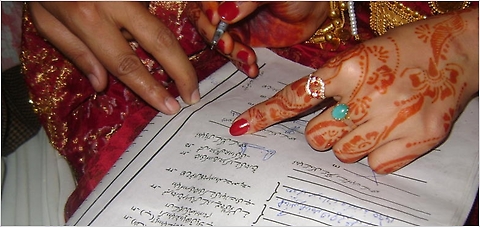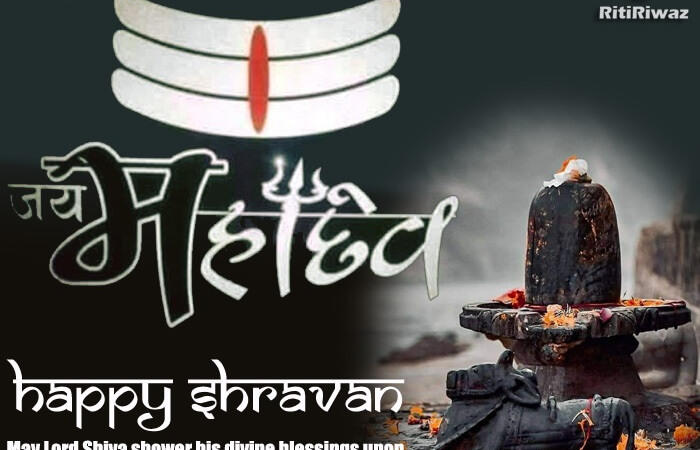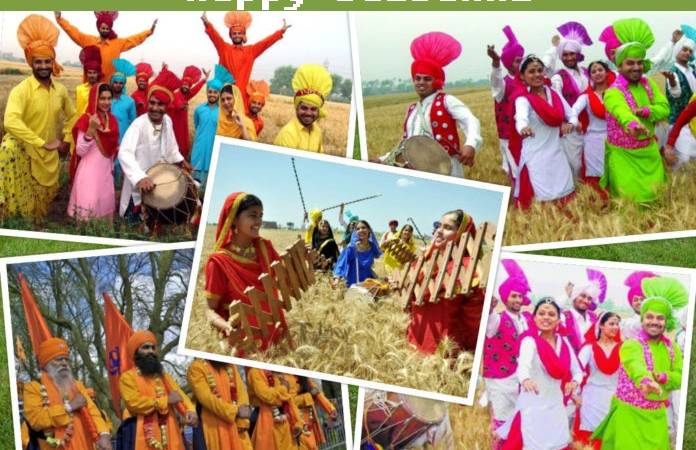Muslim Wedding Traditions and Customs

According to the teaching of Islam, the foundation of the family is laid through marriage. Marriage is regarded as a civil contract between the parties. Since there is no priesthood in Islam the marriage can be solemnized by anyone who has knowledge of Islamic Law and it can be performed at a place convenient to the parties. The marriage ceremony is called NIKAH or the pronouncement of the marriage.
Both the groom and the bride are to consent to the marriage of their own free wills. A formal, binding contract is considered integral to a religiously valid Islamic marriage and outlines the rights and responsibilities of the groom and bride.
Muslim wedding rituals vary depending on the couple’s cultural background (such as Arabic or Indian), but a majority of the main components remain the same. Muslims in India normally follow marriage customs that are similar to those practiced by Muslims of the Middle-East, which are based on Islamic convention.
Traditional Muslim Indian wedding celebrations typically last for three days. Prior to the observance of the wedding ceremony proper, two separate pre-wedding rituals, which involve traditional dancing and singing, occurs in two places: at the groom’s house and at the bride’s home.
Pre-Wedding
Mehndi
On the eve of the wedding day, a bridal service known as the Mehndi ritual or henna ceremony is held at the bride’s home. This ritual is sometimes done two days before the actual wedding day. During this bridal preparation ritual, turmeric paste is placed on the bride’s skin for the purpose of improving and brightening her complexion, after which mehndi is applied on the bride’s hands and feet by the mehndiwali, a female relative.
Wedding Ceremony
Barat
The Indian Islamic wedding ceremony is also preceded by a marriage procession known as the groom’s baraat. From this convoy arrives the groom, who will share a sherbet drink with a brother of his bride at the place of the marriage ceremony. This drinking ritual happens as the sisters of the bride engage in tomfooleries and playfully strike guests using flower-filled cudgels.
Nikah
The wedding ceremony, known as Nikah, is officiated by the Maulvi, a priest also called Qazi. Among the important wedding, participants are the Walises, or the fathers of both groom and bride, and the bride’s legal representative. It is the bride’s father who promises his daughter’s hand to the groom, a ritual known as the Kanya-dhan.
Also in this formal occasion, particularly in conventional Islamic weddings, when men and women typically have separate seating arrangements. Another common practice is wedding sequences that include the reading of Quranic verses, the groom’s proposal and bride’s acceptance parts known as the Ijab-e-Qubul or the ijab and qabul; the decision-making of the bride’s and groom’s families regarding the price of the matrimonial financial endowment known as the Mehar or Mehr (a dower no less than ten dirhams), which will come from the family of bridegroom.
Blessings and prayers are then given by older women and other guests to the couple. In return, the groom gives salutatory salaam wishes to his blessers, especially to female elders. The bride also usually receives gifts known generally as the burri, which may be in the form of gold jewelry, garments, money, and the like.
The marriage contract is known as the Nikaahnama and is signed not only by the couple but also by the Walises and the Maulvi.
After the Nikah, the now-married couple joins each other to be seated among gender-segregated attendees. The groom is customarily brought first to the women’s area in order for him to be able to present gifts to his wife’s sister.
Although jointly seated, the bride and the groom can only observe one another via mirrors, and a copy of the Quran is placed in between their assigned seats. With their heads sheltered by a dupatta and while guided by the Maulvi, the couple reads Muslim prayers.
Post-Wedding
After the wedding ceremony, the bride is brought to the house of her husband, where she is welcomed by her mother-in-law, who holds a copy of the Quran over her head.
Valima
The wedding reception hosted by the groom’s family is known as the Valimah or the Dawat-e-walima.
Suggested Read: Wedding Tradition in India






